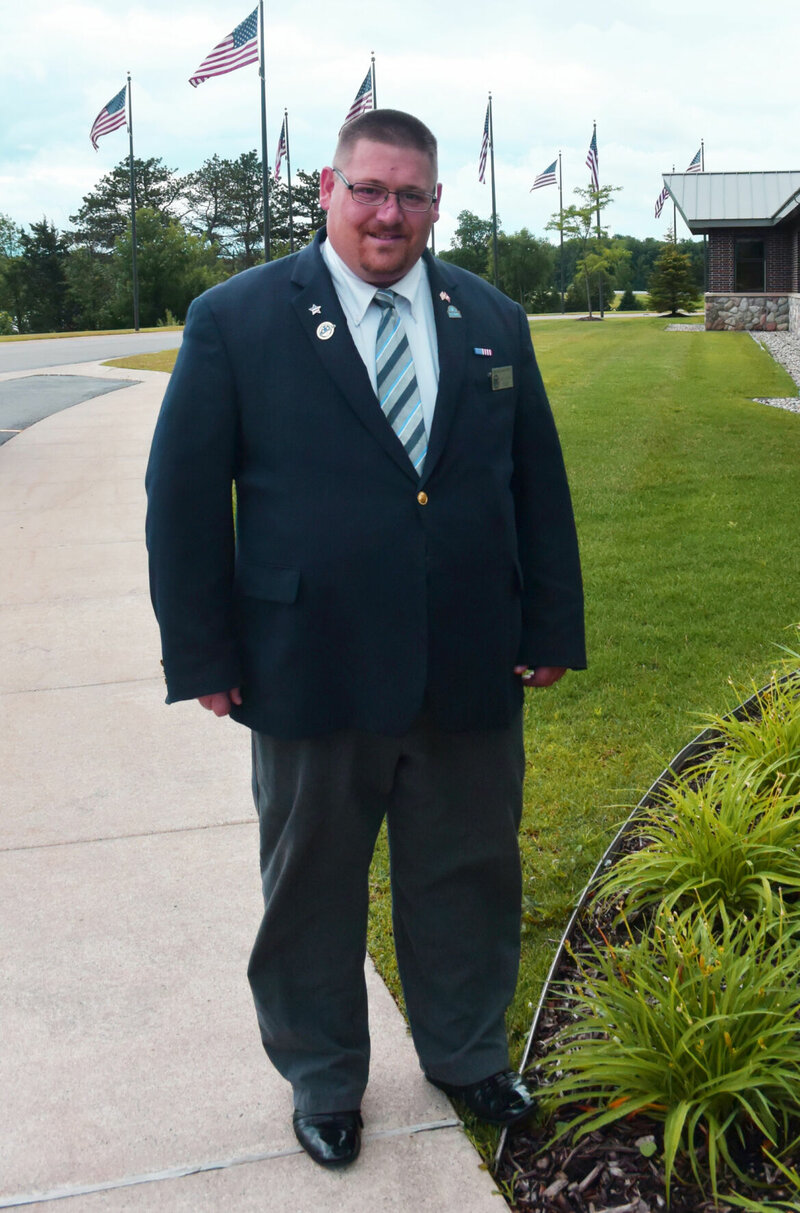
June 09, 2021
Marine with mental illness learns tools to live an independent life
Marine with mental illness learns tools to live an independent life

Ryan Hynes, 35, is a Marine who recovered from mental illness including post-traumatic stress with the help of professionals at Rose Hill Center. Photo courtesy Rose Hill Center
By Amy Pisoni | MediaNews Group | June 7, 2021
We often ask in life, which is more important, the destination or the journey?
This puzzle carries special meaning when we talk about mental illness, considering the profound impact it has on individuals, families, friends and society.
Many times, the best approach to a serious mental illness, whether longstanding or one that becomes an acute emergency situation, is to be cared for in a residential program. At Rose Hill Center, we have a team of experienced doctors, therapists and case managers who can more precisely diagnose an individual’s condition, develop a comprehensive treatment plan and help restore purposeful achievements to one’s life.
But what happens when these goals are achieved, and one is ready to re-integrate with a wider community? The long-term success of mental-health treatment is dependent on a carefully staged transition to a fuller range of activities, with the goal of independent living.
That is achieved through a transitional living program, designed to bridge the gap between residential care and independent living, followed by a meaningful community support program.
In transitional living, our residents reside in townhouses on campus, which foster a community spirit while helping to rebuild the confidence they need to live independently. They reside in a private space of their own and work with staff to pay bills, plan meals and clean their homes. They also develop new relationships, find social support and remain in a stable, safe environment.
In addition to receiving continued mental-health care, such as medication management, regular support meetings and access to 24/7 medical assistance, one of the keys to transitional living is meaningful daily activity. This typically includes going to school or college, paid employment or volunteering in the community, a commitment that carries over when individuals advance to community living off campus and on their own.
A bridge to independence
Although many residents who graduate from our programs are able to return to their own homes or live with their families, some individuals decide to continue on their wellness journey through our community support program. This program provides ongoing assistance to help individuals who have lived on campus for a long time and had limited opportunity to independently manage daily tasks.
Case managers make weekly visits to program participants at their homes to help them with various tasks that can be stressful for someone who is recovering from serious mental illness. This includes creating budgets, paying bills, grocery shopping, navigating new surroundings and helping to fill out job applications.
We find that this structure works well as former residents successfully integrate back into purposeful, community life. During this process, a delicate balance is involved between support and independence. For example, access to the mental-health facility should provide reassurance, but not be seen as a deterrent to one’s independence. Similarly, although families need to stay involved in a loved one’s life, they must also allow individuals to take their own steps and build their independence.

Ryan Hynes experienced mental health issues that required hospitalization while serving in the U.S. Marines. Photo courtesy Marcia Hynes
Rose Hill Center graduate and Fenton resident Ryan Hynes, 35, understand this well. He is a Marine who experienced mental health issues that required two hospitalizations while in service.
After being honorably discharged from the Marines, Ryan moved near his parents in the Chicago area, but again demonstrated serious mental health issues, requiring multiple hospitalizations. He was eventually diagnosed with post-traumatic stress disorder and bipolar disorder psychosis, and his parents started looking for the best treatment center to care for their son.
The family agreed on the need for residential care and selected Rose Hill Center in 2009. Ryan spent almost 10 years on campus proceeding through residential care and then transitional living. For nearly two years now, Ryan has successfully “graduated” to living independently in the community, sharing a private apartment with another former Rose Hill resident.
“For anyone who is struggling with mental illness, you have to find the courage to get help,” says Hynes, who is a volunteer with Meals on Wheels. “Everyone has a different timeline with their recovery. It took a while for me to progress through the program, but I’m very grateful for where I am now in life and with my mental health.”
The Hynes family is realistic about mental illness, the need for continued professional care, and the broadened possibilities when people are open to help.
“One of the lessons of mental health care is you learn to live life by living life,” Ryan’s father, Dick Hynes, adds.
And this is where the journey and destination become one.
Amy Pisoni is a community support program case manager at Rose Hill Center, a Holly, Mich.-based residential psychiatric treatment and rehabilitation facility offering a comprehensive range of services for adults with serious mental illness. Visit rosehillcenter.org.
Share This Story, Choose Your Platform!
Marx Layne is your competitive advantage.
Your reputation and success are our only concerns.
